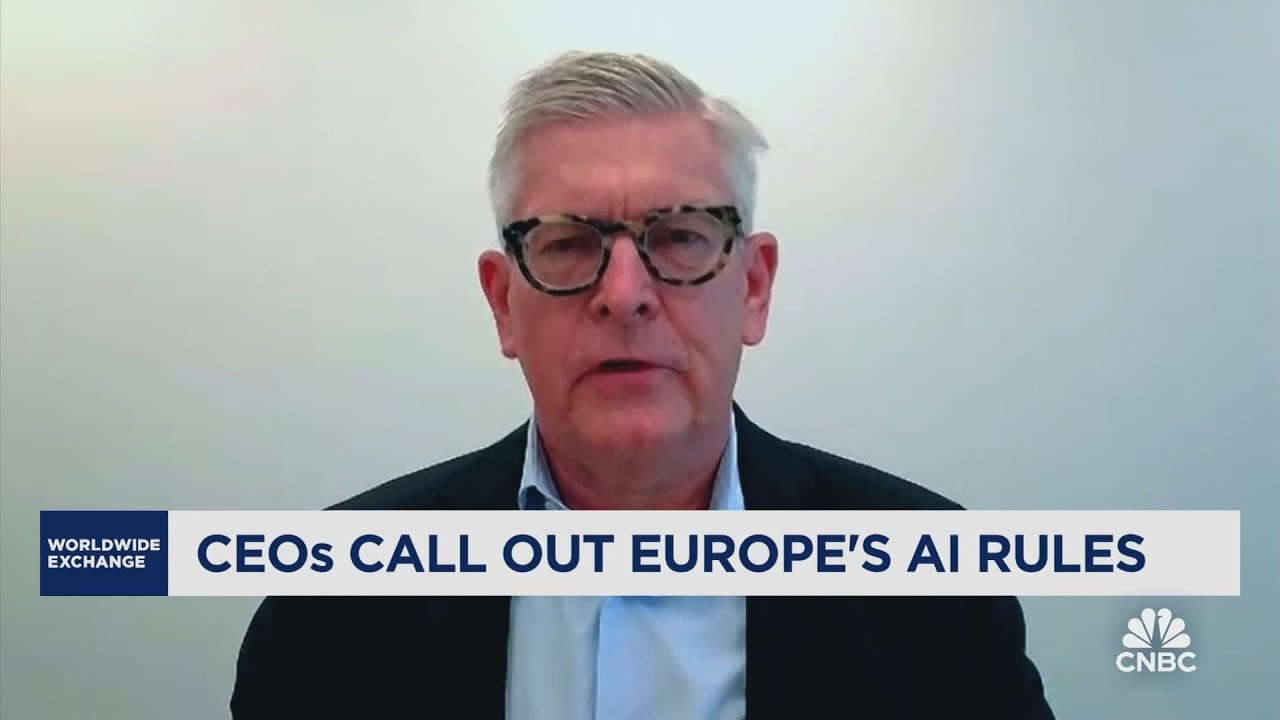Ekholm discussed how fragmented AI regulations in Europe, particularly the AI Act and GDPR, are hindering the adoption of AI technologies and contributing to Europe’s economic lag behind the U.S. He emphasized the need for a cohesive regulatory framework to foster innovation and competitiveness in the tech sector, which is crucial for companies like Ericsson that rely on AI for productivity and growth.
In a recent discussion, Ekholm highlighted the challenges posed by fragmented AI regulations in Europe, particularly emphasizing the impact of the AI Act and GDPR. He pointed out that the inconsistent interpretation of these regulations by various agencies is hindering the adoption of AI technologies across the continent. This fragmentation is not just a concern for AI but reflects a broader issue where Europe is lagging behind the United States in terms of economic growth and productivity, with GDP in Europe being approximately 30% lower than in the U.S.
Ekholm noted that a significant portion of this productivity gap can be attributed to the underdeveloped tech sector in Europe. He expressed that while AI is currently a hot topic, the underlying issue is much larger, encompassing the overall competitiveness of Europe in the global market. The letter signed by various companies, including Meta, aims to address these regulatory concerns and advocate for a more cohesive approach to AI regulation that would facilitate innovation and growth.
When asked about the motivations behind signing the open letter, Ekholm acknowledged the self-interest of companies like Ericsson in seeking fewer regulations on AI. He explained that AI is a crucial technology that can drive productivity gains and enhance business margins. For Ericsson, AI is fundamental to their operations, particularly in areas such as network management, energy optimization, and overall service offerings.
Ekholm emphasized that AI is not just a technological advancement but a necessary component for competing effectively in the market. He pointed out that a significant portion of Ericsson’s research and development (R&D) is based in Europe, making it essential for the company to remain competitive in the AI space. The current regulatory environment could influence future decisions regarding where to allocate R&D resources, which is a critical consideration for the company’s growth and innovation strategy.
In conclusion, the fragmented regulatory landscape in Europe poses a significant barrier to the adoption of AI technologies, which could ultimately affect the region’s economic competitiveness. Ekholm’s insights reflect a broader concern among tech companies about the need for a more unified regulatory framework that supports innovation while balancing necessary safeguards. The ongoing dialogue around AI regulation will be crucial in determining how Europe positions itself in the global tech landscape moving forward.
